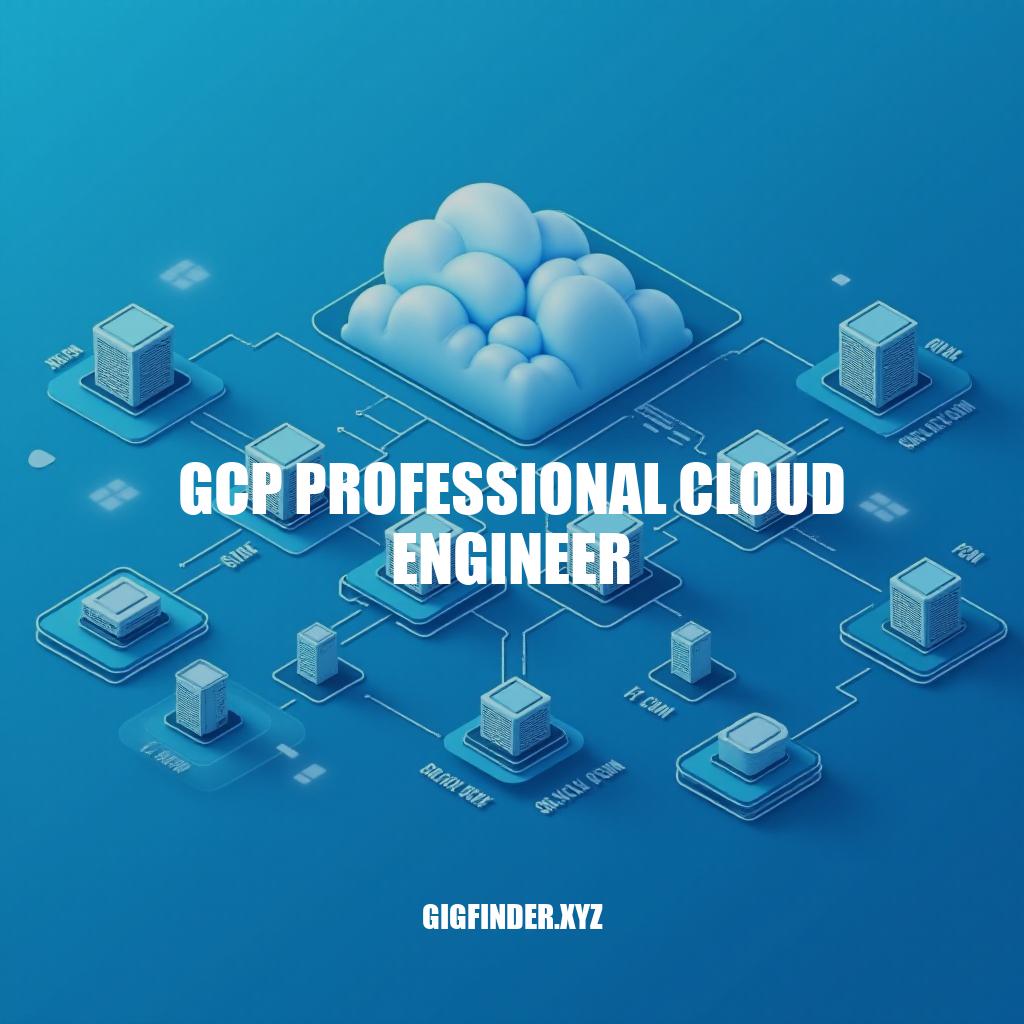
A GCP Professional Cloud Engineer manages and designs scalable, reliable cloud solutions using Google Cloud Platform. This certification validates expertise in GCP architecture, security, compliance, and data management. Essential skills include network configuration, CI/CD, cloud monitoring, and performance optimization.
Mastery in designing cost-effective, secure, and performant cloud infrastructure is critical. Proficiency in Kubernetes, IAM, and cloud storage solutions further underscores the certification’s relevance in a competitive market.
Key Responsibilities
A GCP Professional Cloud Engineer is responsible for designing, implementing, and managing cloud solutions on Google Cloud Platform (GCP). This includes creating scalable, highly available, and fault-tolerant systems using GCP services like Compute Engine, App Engine, Kubernetes Engine, and Cloud Functions. They also manage and provision cloud infrastructure, ensuring optimal performance and cost-efficiency.
These responsibilities align with cloud architecture and management by ensuring that the cloud infrastructure is designed to meet business needs, providing scalability, reliability, and security.
The engineer collaborates with cross-functional teams to optimize cloud infrastructure, automates deployment processes, and troubleshoots issues to maintain system performance and availability.
Essential Skills
A GCP Professional Cloud Engineer needs to be proficient in designing, developing, and managing robust, secure, and scalable cloud-based applications.
Technically, they should excel in cloud architecture and infrastructure, leveraging GCP services like Compute Engine, Cloud Storage, and Kubernetes Engine. Proficiency in networking, databases, and security measures within GCP is key. They should also have hands-on experience with DevOps practices, CI/CD pipelines, and automation tools.
Coding skills in languages like Python, Java, or Go are a must, along with a deep understanding of containerization and orchestration using Docker and Kubernetes.
Soft skills are equally crucial. Effective communication is essential for collaborating with cross-functional teams and stakeholders. Problem-solving skills are vital for diagnosing issues and optimizing performance.
They need to be adaptable, capable of keeping pace with rapid technological advancements. Critical thinking and a proactive mindset are key to anticipating challenges and innovating solutions. Teamwork and leadership abilities help in guiding projects and mentoring junior team members.
In essence, they blend technical prowess with interpersonal skills to drive cloud initiatives and foster innovation within their organization.
Certification Process
-
Review the Exam Guide: Obtain and review the official exam guide to understand the topics covered.
-
Training: Enroll in Google Cloud’s training courses, including online classes, hands-on labs, and in-person sessions.
-
Study Materials: Utilize study guides, practice exams, and other resources available on platforms like Coursera and Tutorials Dojo.
-
Hands-On Experience: Gain practical experience with Google Cloud Platform through projects and labs.
-
Sample Questions: Practice with sample questions to familiarize yourself with the exam format.
-
Exam Registration: Register for the exam and choose your preferred delivery method (online or onsite proctored).
-
Exam Preparation: Dedicate time to study and review all relevant materials thoroughly.
-
Take the Exam: On the exam day, ensure you are well-rested and ready to perform at your best.
Career Opportunities
Google Cloud Platform (GCP) Professional Cloud Engineers can explore a variety of career opportunities across different industries. Here are some potential job roles and industries:
Job Roles
-
Cloud Architect: Design and manage the entire cloud infrastructure of an organization. Work closely with stakeholders to understand business needs and translate them into scalable cloud solutions.
-
Data Engineer: Develop and deploy data processing systems.
Ensure source data quality and integrity. Coordinate with data scientists on data modeling optimization.
-
Cloud Developer: Build scalable applications using GCP services. Develop CI/CD pipelines for efficient deployment.
Monitor application performance and correct errors.
-
DevOps Engineer: Automate tasks and enhance collaboration between development and operations teams. Implement CI/CD practices to streamline software delivery.
-
Cloud Security Engineer: Develop security measures and test systems for vulnerabilities. Design security architectures for cloud environments.
-
Machine Learning Engineer: Create algorithms that enable machines to learn from data.
Work on projects involving artificial intelligence (AI) and predictive analytics.
Industries
-
Technology and IT Services: Companies like Google, Microsoft, and Amazon hire GCP professionals to manage and develop cloud solutions.
-
Finance and Banking: Financial institutions use cloud services for data storage, security, and transaction processing.
-
Healthcare: Hospitals and healthcare providers use cloud platforms for managing patient records, telemedicine, and research data.
-
Retail and E-commerce: Online retailers use cloud services for managing inventory, customer data, and online transactions.
-
Manufacturing: Manufacturers use cloud platforms for supply chain management, production planning, and quality control.
-
Education: Educational institutions use cloud services for online learning platforms, student records, and research data.
These roles and industries offer diverse opportunities for GCP Professional Cloud Engineers to apply their skills and expertise.
A GCP Professional Cloud Engineer Role
A GCP Professional Cloud Engineer is responsible for designing, implementing, and managing cloud solutions on Google Cloud Platform (GCP). They must have expertise in cloud architecture, security, compliance, and data management, as well as proficiency in Kubernetes, IAM, and cloud storage solutions. The engineer collaborates with cross-functional teams to optimize cloud infrastructure, automates deployment processes, and troubleshoots issues to maintain system performance and availability.
Becoming a GCP Professional Cloud Engineer
To become a GCP Professional Cloud Engineer, one must review the exam guide, enroll in Google Cloud’s training courses, study materials, gain hands-on experience, practice with sample questions, register for the exam, prepare thoroughly, and take the exam. The certification validates expertise in designing cost-effective, secure, and performant cloud infrastructure.
Career Opportunities
GCP Professional Cloud Engineers can explore various career opportunities across different industries, including cloud architect, data engineer, cloud developer, DevOps engineer, cloud security engineer, and machine learning engineer. They can work in technology and IT services, finance and banking, healthcare, retail and e-commerce, manufacturing, and education. The certification offers diverse opportunities for applying skills and expertise, driving innovation within organizations, and fostering growth in the field of cloud computing.


